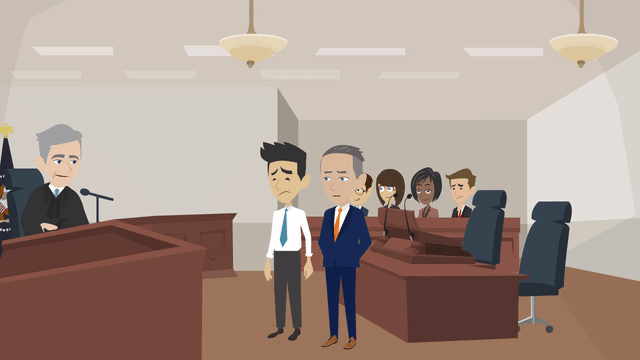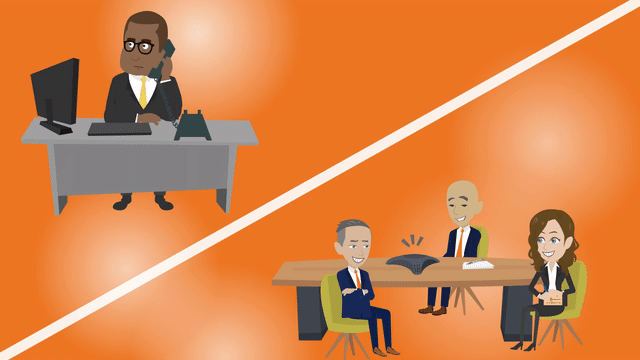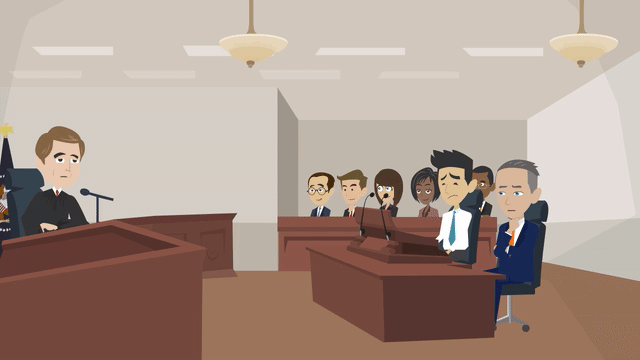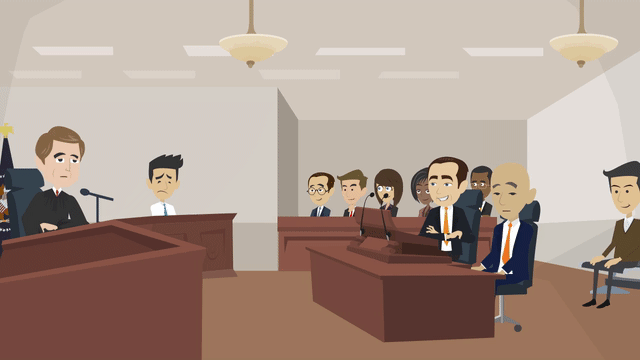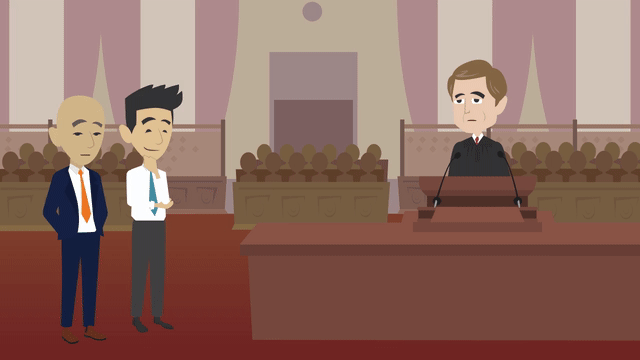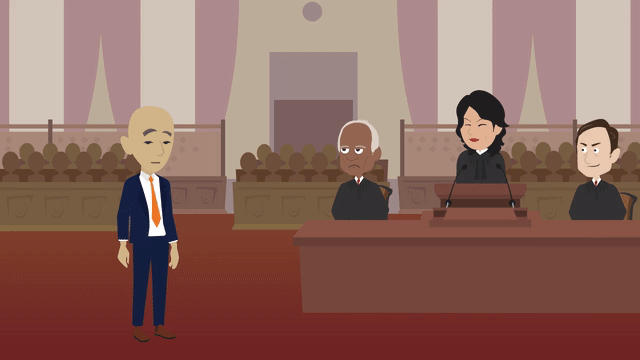Criminal Defense Frequently Asked Questions
If you or a loved one has been accused of a crime you probably have many questions and do not know where to turn. It is important to understand that hiring an experienced criminal lawyer is one of the most important choices you can make. To help those who have not yet hired a lawyer we have answered some of the most asked questions we receive. Please note, because they are some of the most common questions, the answers here are general, and you should speak to an experienced criminal defense attorney about the specific facts of your case.
Frequently Asked Questions about Criminal Defense
Our criminal defense lawyers provide answers to some important questions below.
In New York State, if you are charged with a misdemeanor or felony, you are required to have an attorney present with you at all stages of your case after you are arrested. If you are charged with a non-criminal violation, such as disorderly conduct or harassment, or a non-criminal traffic offense, you will not be required to have an attorney. However, hiring an experienced criminal defense attorney to represent you is recommended as your lawyer will have the knowledge to determine if any of your legal rights were violated and how to best proceed with your case by way of a resolution or trial.
No. It is usually not in your best interest to plead guilty even if you committed the crime you are charged with. An experienced criminal defense attorney may be able to negotiate a plea to a lesser charge which could eliminate your criminal exposure entirely, or lessen potential penalties, fees, and/or surcharges.
At LaMarche Safranko Law, we pride ourselves on our teamwork approach. Every case gets assigned to one of our partners and one of the associate attorneys so you will always have two points of attorney contact. We hold weekly firm meetings to discuss and address cases so that in the case of an emergency ANY of our attorneys or the paralegal assigned to your case will be able to help you. Your lead attorney will always have primary responsibility for your case and will be your main point of contact. If the attorney you are working with is unable to attend a court appearance with you, you will be contacted and advised as to which attorney from our office will attend your court appearance. In most cases, your primary attorney will appear with you.
There is no set formula for how often you will hear from your attorney. However, the key to a successful attorney client relationship is communication. Whenever there is an important occurrence in your case you will be contacted or notified. This will range from calls to discuss the discovery in your case, the results of working with a private investigator, plea bargain offers, or just a simple check in. Importantly, if you have any questions about your case, you should contact your lawyer.
For your criminal lawyer to help you get the best outcome, you need to be honest with your lawyer. You should be available when your lawyer needs you and you should understand the evidence against you and any possible defenses to your case so you can make an informed decision about how to proceed. If applicable, you should follow the advice of your lawyer including getting treatment for drugs, alcohol, other addictions, or mental health. The best criminal lawyers take your case seriously and personally and will work very hard to achieve the best outcome for you based on the law and the specific facts and circumstances of your case.
Yes. If you have a drug or alcohol problem, you should get into a treatment program immediately. You should be available when your attorney needs you. You may want to talk to your lawyer about obtaining character reference letters. You should appear in court whenever you are required to be there. You should go to school or be employed so you are being a productive member of society. You should follow any orders issued by the judge, including complying with any active orders of protection. Finally, and probably most importantly, you must not get rearrested while your case is pending.
You should follow the recommendation of your doctor or drug/alcohol evaluator who is in the best position to know what the appropriate level of care for your situation is.
You should bring all documents that you have regarding your arrest or the investigation including copies of any charges or subpoenas, appearance tickets, documents regarding any items seized, names/addresses of any witnesses, and any other information you deem important for your case. At your initial meeting, your lawyer will begin to formalize and strategize regarding your case and the defenses that are available.
How long a criminal case takes will vary based upon the nature of the charges, the number of people charged, where you are charged, the complexity of the case and the amount of discovery involved. For a breakdown of your criminal case and an overview of the criminal process, please see the Criminal Defense Timeline.
Timeline of a Criminal Defense Case
- Whether you just made a big mistake, or are being falsely accused, this can be a very emotional and important time in a case
- It is very important that you remain silent and not answer any questions about the case without a lawyer present
- Contact a criminal defense attorney as soon as possible
- Confirm the lawyer is an experienced criminal defense lawyer
- Meet with the lawyer who will help you understand the process of a criminal case
- If you have been arrested, critical proceedings and time frames begin immediately
- You will appear before a judge who will determine if you will be incarcerated, released on bail or supervision, or released without conditions
- If you are charged with a felony in a town, village or city court, the prosecuting agency will have six months from the date of your arrest to determine whether to present your case to a grand jury to seek an indictment or return your case to a lower court to be handled as a misdemeanor
- Discovery is the exchange of information between the governmental agency prosecuting you, you, and your attorney
- In New York State this process begins shortly after your appearance in court
- You can expect exchange of the following if it exists in your case:
- Police Reports
- Investigative Notes
- Videos / Body Camera Footage / Dash Camera Footage
- Forensic Reports
- Photographs
- Exculpatory Material (Brady)
- Impeachment Material
- You and your attorney may also be engaged in information gathering that includes:
- Freedom of Information Law (FOIL) Requests/Responses
- Additional Witness Interviews
- Expert Evaluations / Disclosures
- Motions are written applications to the court to request any of the following:
- Preclude Evidence
- Suppress Evidence
- Seek a Ruling on a Constitutional Rights Violation
- Seek Outright Dismissal of One or More Charges Based on Legal/Factual Matters
- Request Hearings
- A plea bargain is an offer from the prosecuting attorney to resolve your case
- Whether to plead guilty or not is always a choice you get to make, not your attorney
- Your attorney will meet with you, discuss the facts and the law of your case, and offer advice. A plea offer takes into consideration your charges as well as:
- Prior criminal history if any
- Life experiences
- Evidentiary Problems
- Post-Incident Actions
- Mental Health Counseling
- Substance Abuse Treatment
- Anger Management Treatment
- If you choose not to accept a plea bargain and are heading to trial, there are likely to be hearings to consider the following:
- Preclusion/Suppression of Evidence
- Admissibility of Evidence
- What Prior Criminal History/Bad Acts May Be Introduced by the Prosecutor if You Testify on Your Own Behalf
- During a hearing, there is no jury, and the judge will make factual and legal determinations regarding what evidence will be allowed at trial.
- You have the right to a trial by a fair and impartial jury or by the judge who will act as both judge and jury
- At a trial, the prosecution has the burden to prove your guilt beyond a reasonable doubt
- The judge or jury will listen to the evidence presented and the arguments by the lawyers, apply the facts to the law, and render a verdict of not guilty or guilty
- A Verdict must be unanimous
- If you are convicted at trial, or if you entered a plea bargain, there will be a sentencing date where your punishment will be imposed by the judge
- If you previously entered a plea bargain, the judge will likely impose the agreed upon sentence at that time
- In the event you are convicted, you have the right to appeal
- This is true whether you plead guilty or are convicted after trial
- However, by accepting a plea bargain, you may have waived some of your appellate rights
- It is important that your attorney file a notice of appeal on your behalf and that you discuss the appeal process with your lawyer
This answer depends on many factors, including the seriousness of the charge(s), the significance of the investigation, whether the case will proceed to a trial or be resolved by way of a plea bargain, the amount of time devoted to your case, , the location of the court, whether written motions are submitted to the court, and whether hearings are needed. Every criminal case is different. Your criminal lawyer should take the time to explain all your options and the issues relevant to your case. For more information about fees pertaining to criminal defense matters, please see our criminal defense fees blog.
In general, it is best not to speak to the police or law enforcement without an attorney present. You and your attorney can always decide whether to speak to the police or other investigators. When you speak to law enforcement, your statements could potentially incriminate you and be used against you in your criminal case.
Prior to going to the police station, it is always best to contact an experienced criminal defense lawyer. By contacting a lawyer first, law enforcement will likely tell your lawyer if charges have been or will be filed against you. If charges are filed your lawyer can help, ensure that you will be released and/or bail is set if your charges fall into the categories where your release is not automatic. Please see our pages regarding bail and discovery reform. Your criminal lawyer will also protect you from making any statements that may incriminate you. It is always important to be respectful to law enforcement, but that does not mean you must answer questions regarding their investigation. If you have current charges or charges will be filed, it is always in your best interest to voluntarily self-surrender, if possible, with a lawyer by your side.
Every criminal case is unique and different and requires a thorough review of the facts, circumstances, and law. It is important to contact an experienced, compassionate, and caring criminal defense lawyer who has broad experience in the criminal justice system. When you select your criminal defense attorney it is important that your lawyer has the experience to help you and your case.
In most instances, especially if you are charged with a misdemeanor or a felony, you will have to appear in court on several occasions. However, there are many times when your attorney can appear on your behalf, so you are not inconvenienced or must miss work or family engagements. If you cannot appear in Court, it is important for you to contact your lawyer so that your appearance can be excused. Failing to appear at a required Court appearance can hurt your case and/or result in a warrant for your arrest. It is important that you keep in touch with your criminal defense lawyer regarding the status of your case and whether you need to appear in court on a particular date.
An experienced criminal defense lawyer cannot guarantee or make promises regarding the outcome of a case. Every case is different. Based on experience, the attorney may be able to provide some examples of prior similar cases or the thought process as to how the case may proceed. However, a prior successful outcome in another case, does not mean you will obtain the same result. It is important for you to discuss all aspects of your case with your lawyer before any decision can be made regarding the potential result or outcome of your case.
Not necessarily. The Miranda rights or Miranda warnings, commonly referred to as your right to remain silent, protect you from making any statements that the prosecutor will use against you at trial. If the prosecution or police are not seeking to question you or to use your statements against you, they are not required to provide the Miranda warnings. Law enforcement is required to give Miranda warnings when you are a suspect in police custody during a custodial interrogation.
Having a drug or alcohol addiction is very common in the criminal defense world. Obtaining and successfully completing drug or alcohol treatment or counseling can potentially help with the resolution or your case. In fact, there are many options available for people who committed crimes based on a drug or alcohol addiction, including participation in a Drug Treatment Court. In most circumstances, you will be rewarded for addressing your problem, not punished for having had one.
Maybe. While many cases resolve by way of a plea bargain prior to trial, in many cases there is a disagreement about what happened, or what a fair resolution would be. In these cases, the matter proceeds to a trial so a jury or judge can determine whether the person charged is guilty or not guilty.
Nothing. At a trial, the burden of proof is on the prosecutor to prove your guilt beyond a reasonable doubt. A defendant in a criminal case does not have to prove his/her innocence. In fact, the defendant in a criminal case is under no obligation to speak or testify at all.
Yes. If there is a person who was harmed, that person will have an opportunity to participate in the case either as a witness during a trial, or by speaking to the prosecutor’s office prior to a plea or at a sentencing. Although the victim has an opportunity to be heard, and while the victim’s position can impact the outcome of the case, if the case resolves by way of a plea bargain, the prosecutor has the final say on any offer that is made to resolve a case. If the matter proceeds to a trial, a jury has the final say in determining disputed facts. If there is a plea bargain or a conviction, a judge has the final say in imposing the sentence.
Yes. If you get rearrested while your case is pending or if you violate any court orders (such as an order of protection), or if you fail to return to court when required your criminal case may be adversely impacted.
It is important to understand that the absence of a criminal history does not change the facts of the case you and your attorney are defending. If the case is decided by a judge or jury, the verdict will be determined by the facts as presented and argued by the prosecution and the defense. Should you be convicted, however, your otherwise clean record can weigh in your favor as the judge determines the severity of your sentence. A clean record also can also help your lawyer negotiate a more favorable plea bargain.
In New York state, thanks to a record-sealing law passed in 2017, you are now eligible to have a broad range of convictions—felony and misdemeanor—sealed from public view after a ten-year waiting period. Sex crimes and violent felonies are excluded.
Generally, a felony is charged when the alleged conduct of the defendant is more serious. The technical distinction is one of maximum punishment. If a crime carries a maximum incarceration of one year or less, it is a misdemeanor; more than a year and it rises to a felony. Serious crimes such as murder, rape, arson, robbery, grand larceny, and kidnapping are felonies; petit larceny, minor drug, or marijuana offenses, etc., are misdemeanors. With many crime categories, such as drug offenses, assault, and theft, whether it is a misdemeanor, or a felony depends on the severity of the offense.
Yes. If an ongoing investigation reveals that additional charges are warranted, the police, the district attorney’s office, or a grand jury can choose to charge you with additional offenses even if you have already been charged. It is important to avoid all actions that might incriminate you of further crimes. These include talking to the police (you have the right to tell them you cannot talk without your lawyer), talking to other people about the case, and posting about your case on social media. Keep quiet in public, and work with an experienced criminal defense lawyer who can do all the talking for you.
Character reference letters may help your case. They are always helpful to show a prosecutor or Judge a different side of the person that they are prosecuting or sentencing. It is always a positive to show that you have the support of your friends and family. While family letters of support are very important, the best letters come from people that do not need to write letters. These include letters from politicians, clergy, employers, former spouses/relationships, and others that are involved in your local community.
A character reference letter should include an introduction of yourself, that you are writing in support of a particular defendant, a description of your relationship with the person being sentenced, examples and evidence of the character, morals, work ethic, and reputation of the defendant. The letter should also request leniency or a particular sentence. It is important to include your name, address and contact information so that the Judge can contact you if they have any questions.
No. There is no set number of character reference letters are required. A few very supportive letters are better than several letters from people that do not really know you or understand your predicament. It is best to obtain as many letters that you can from people that can place into words how you have grown during the time frame from arrest to conviction.
In New York, felonies range from a class E felony, which is the least serious felony, to a class A felony which is the most serious felony charge you can face. Each felony level has a maximum period of incarceration. For instance, an E felony has a maximum period of imprisonment of 4 years; a D felony has a maximum period of imprisonment of 7 years; a C felony charge has a maximum period of imprisonment of 15 years; a B felony charge has a maximum period of imprisonment of 25 years; and an A felony charge has a maximum period of life in prison. Note that drug offenses carry different punishments. For example, first time drug offenders face the following periods of incarceration: an E felony drug offense has a maximum period of imprisonment of 1 ½ years; a D felony has a maximum period of imprisonment of 2 ½ years; a C felony charge has a maximum period of imprisonment of 5 ½ years; a B felony charge has a maximum period of imprisonment of 9 years; and an A felony charge has a maximum period of incarceration of 20 years.
Shock incarceration is a prison alternative where eligible inmates complete a rigorous six-month program. The program consists of physical activity, discipline, rehabilitation therapy, and programming. The program is like military basic training. If you successfully complete SHOCK, the remainder of your prison sentence will be spent on Parole or Post-Release supervision.
To qualify for SHOCK incarceration, you must be an eligible inmate. “Eligible inmate” means a person sentenced to a term of prison and is eligible, or will become eligible, for release within three years, who has not reached the age of 50, and who has not previously been convicted of a violent felony. Additionally, you do not qualify for SHOCK incarceration if you are convicted of any of the following crimes:
- a violent felony offense except for burglary in the second degree pursuant to 140.25(2) or robbery in the second degree pursuant to 160.10(1) or an attempt thereof
- an A-I felony offense
- any homicide offense
- any felony sex offense
- any escape or absconding offense
LaMarche Safranko Law Testimonials
“My family and I cannot thank George and his staff enough for all of the support and guidance they have given us over the past six months. Anyone who has ever suffered a personal injury knows how difficult they are to overcome, but I’m glad we had such an intelligent and hardworking attorney on our side so I could focus on my recovery rather than on the details of the case….
“The arrest of my husband in 2008 was an extremely difficult and emotional time for our family. The arrest turned our lives upside down. It was sudden and unexpected and had tragic emotional as well as financial consequences. I had no idea what to do under the circumstances….
“Dear Andrew and George,
I cannot thank you enough for your hard work, diligence, and selfless manner that you put towards my legal difficulties in Colonie. From the first moment I met you, you helped reassure me that things were going to turn out in a more favorable manner than I originally thought. Clearly, the final result of my court case displays the quality of time and work that you put into this….
“Dear Mr. Safranko,
Thank You so much for answering my question, and so expediently!
The dedication, respect, and consideration with which you treat your clients, current and past, is remarkable. It is why I reached out to you when searching in my time of need, and why I would highly recommend…
“Throughout the attorney client relationship regarding my personal injury lawsuit, George and his staff continually exhibited tremendous amounts of legal knowledge, skill, and a vast amount of expert resources that ultimately resulted in a final judgment in my favor. George was there every step of the way to explain where we stood and what to expect next and there was never a need to question his professional judgment…
“I wanted to take this opportunity to thank you for your excellent representation on my recent matter. I have worked with lawyers, and in law firms much of my professional life, but I have never encountered the rare mix of skill, integrity and humanity in one individual—you….
“I am an attorney who found himself in the middle of a serious, personal legal matter that compromised not only my personal life but my professional life as well. I immediately contacted Andrew (Andy) Safranko, Esq. Andy worked tirelessly and extremely hard to bring my legal situation to a very favorable resolution. In so doing, Andy not only saved certain aspects of my personal and professional life…
“I cannot thank George E. LaMarche lll and his team for the excellent legal work they provided for my son, and in extension, our entire family. His experience, knowledge of the law, networking ability and communication is second to none. In our case, our son was wrongly accused by a small town police officer and charged with 5 tickets…
“I can honestly say that the best decision I’ve ever made was retaining George LaMarche as my attorney. I was in a situation where everything wasat risk; my career, livelihood, and the ability to provide for my family. In desperation, I contacted over a dozen attorneys. The majority of the lawyers I spoke with promised results without seeing paperwork or knowing valuable facts….
“No one likes to be in a bad situation, but if you need a lawyer George is your man. Not only does he point you in the right direction he offers good advice for your future. As much as we bring him business he does not encourage that next time anticipation….
“Dear George, Andy and Staff,
Thank you all for your kindness and all your help in getting back to my wellbeing and life. I could not have done it without you all. Everything is going so well again. I recommend you highly. Thanks Again!”
“The staff at LaMarche Safranko Law took care of whatever I needed, it was just fabulous. It was top shelf, if I called, I got George. If he was in a meeting, they left him a message. He called me right back after the meeting. Everybody was very courteous and very nice there. If I left a voicemail, everybody got back to me quickly. The level of service was very, very good and I would Highly recommend them.”
“Dear Andy,
Thank you so much for everything you have done for our son over the last three years. This has been a very challenging time for our family and the knowledge that our son has an attorney as capable and amazing as you are has given us peace of mind!
“I wanted to express my deepest appreciation to Mr. Andrew Safranko for the exceptional job he did in regards to my legal representation. Mr. Safranko displayed the utmost in professionalism and discretion during the entire court process, and took the time to explain each and every step….




